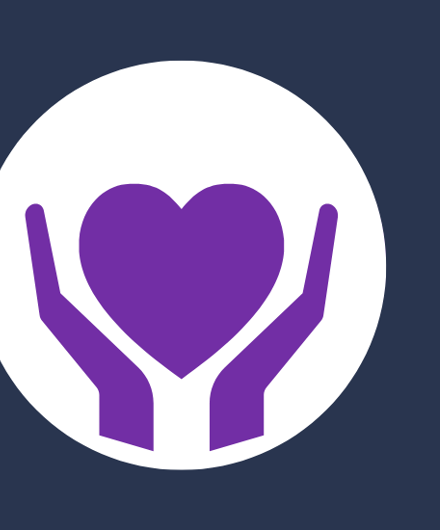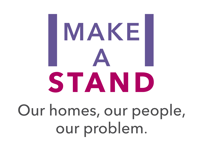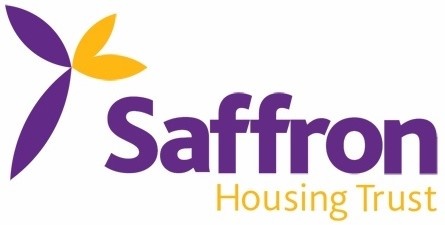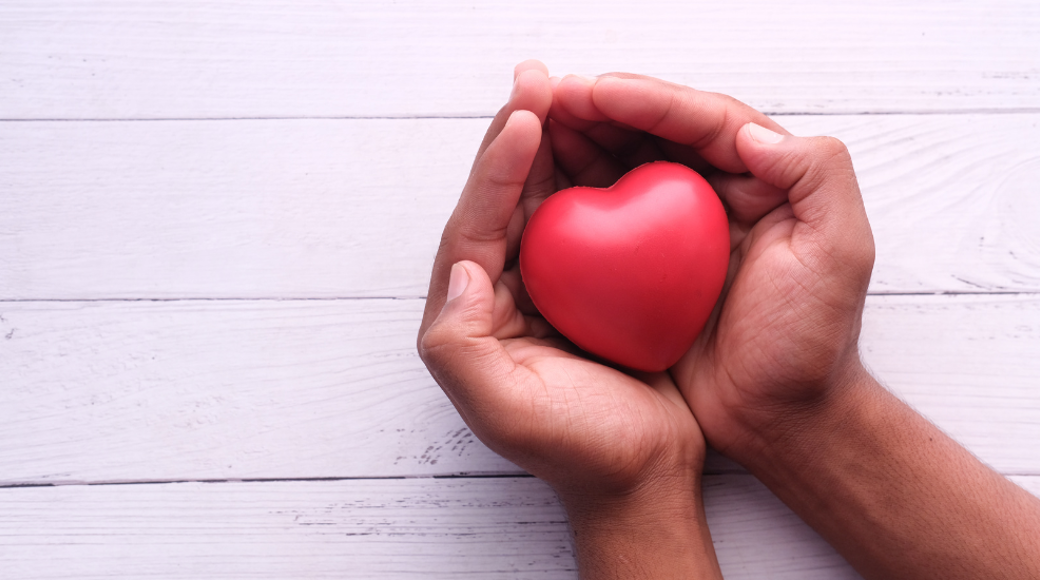Download our Domestic Abuse information leaflet for tenants here.
Always call 999 in an emergency. Domestic abuse is a crime and should be reported to the police.
If you are worried about someone knowing you have visited this website click here to read important safety information. To exit this page quickly, use the quick exit button on the right hand side of the screen.
If you or anyone you know, is suffering from domestic abuse, call the 24-hour National Domestic Violence Freephone Helpline on 0808 2000 247.

Domestic abuse form
If you think you are suffering from domestic abuse, or if you would like to report it on behalf of someone you believe is experiencing domestic abuse, you can report it to us using our form. All crimes must be reported through to the police to investigate.
Find out moreDomestic abuse is not just physical violence. It is any type of abuse from someone you have (or have had) a relationship with, including economic, emotional, sexual or mental abuse.
Abusive behaviour includes acting in a controlling, coercive or threatening manner; typical actions might include taking your money, stopping you seeing your friends and family, or threatening your children or pets.
Domestic abuse can affect anyone.
Click here for the Home Office’s Domestic Abuse Act factsheet.
Click here for Women's Aid's advice about planning to leave home.
Once your report has been received, a trained member of staff will be in touch within 1 working day. We will assess your current situation and create an action plan with you. To make sure you get the right support we may work with other agencies such as Women's Aid, Refuge, Victim Support, the police and local authorities. Where appropriate, we may also refer to a Multi-Agency Risk Assessment Conference (MARAC).
Safety equipment
Our Neighbourhood Team offer free safety equipment to survivors of domestic abuse to use in their homes. The equipment is there to help enhance your safety and give you peace of mind. It includes:
- Door handle alarms
- Window alert alarms
- Door braces
A person experiencing domestic abuse needs to know their rights to remove the perpetrator from their home and what their options are if they have to leave. Click here for more information on the Shelter website.
The effect of domestic abuse can continue for many years after leaving the abuse.
People who have experienced abuse often find that gaining support through a specialist group programme is useful to help them to understand how abusers use power and control within relationships.
Please note that these courses are free but do run at different times and venues so may not always be available. Contact the groups listed for further information or ask for a Neighbourhood Officer to contact you who will be able to provide you with more information. You can find more information about your Neighbourhood Officer by clicking here.
Local organisations delivering recovery groups
- All of Norfolk - NIDAS – Norfolk Integrated Domestic Abuse Services (medium and high risk support) - 0300 561 0555
- Breckland - Daisy Programme
- Lowestoft - Waveney Domestic Violence and Abuse Forum - 01502 572143
- Lowestoft - Waveney - Orwell (Liberty Project) - 0845 467 1420
- King’s Lynn and West Norfolk - Pandora Project
Freedom Programme
- 01942 262270
- The Freedom Programme is a 12 week group course. It helps victims to understand the tactics abusers use and how to break the pattern of abuse.
Through Life & Progress, we offer a Tenant Support and Wellbeing Service for tenants. It is a free, completely confidential independent service, giving tenants 24/7 access to professional and confidential telephone counselling, advice and support
For more information about the Tenant Support & Wellbeing Service, click here or call 0330 094 5593.
Or you can click here to visit their website and log in with the following details:
Username: saffronhousingtrust
Password: tenantsupport
Counselling
Some people who have been through abusive relationships can also benefit from individual counselling support. Counsellors can be found through online directories such as on the British Association for Counselling and Psychotherapy or Counselling-Directory, but these will normally charge a fee. The following organisations can provide a lower cost (or sometimes free) option depending on the person’s ability to pay:
Norfolk Wellbeing Service
Free services throughout Norfolk & Waveney for anyone aged 16 or over – often in GP surgeries or other community venues. Different kinds of support is available to help people make positive changes, improve wellbeing and cope with stress, anxiety and depression. Youth Service available for those aged 16-19.
Telephone: 0300 123 1503
Mancroft Advice Project
Free counselling for young people aged 11-25 with centres in Norwich, King's Lynn, Attleborough, North Walsham and Great Yarmouth.
Telephone: 01603 766994
Off the Record - Norwich
Telephone: 01603 626650
One to One Project - West Norfolk
Telephone: 01553 770770
Sue Lambert Trust
Support for male and female survivors of sexual abuse in Norfolk whenever it occurred - counselling and telephone support. Centres in Norwich and Great Yarmouth.
Telephone: 01603 622406
St Barnabas Counselling Centre - Norwich
Telephone: 01603 625222
The Norwich Centre - Norwich
Telephone: 01603 617709
Mind Norfolk and Waveney
- 01603 432457 (Norwich and Central Norfolk)
- 01493 842129 (Great Yarmouth and Waveney)
- 01553 776966 (West Norfolk)
Benjamin Foundation
Telephone: 01603 615670
Relate
Telephone: 01603 625333
Further information


- For help and advice in Norfolk click here
- For help and advice in Suffolk click here
- To report domestic abuse via the government website, click here
- Tenants can self-refer for an injunction for free at The National Centre of Domestic Abuse by clicking here
- Whatever the circumstances of your relationship, whether there is emotional, physical, sexual or financial abuse, a safety plan can be really helpful. This factsheet will give you information about safety planning if you have left, are thinking about leaving or if you want to stay with your partner.
- Free counselling for domestic abuse victims is available to those who live in South Norfolk and Broadland through the charity, Dawn's New Horizon. For more information, click here or see the infographic below.

- Bright Sky App - A free to download mobile app providing support and information for anyone who may be in an abusive relationship or those concerned about someone they know. The app is also available to use in Polish, Punjabi , Welsh and Urdu. For more information or to download the app click here.

We are part of the Chartered Institute of Housing's Make a Stand Campaign to tackle domestic abuse. You can find out more on their website by clicking here.

